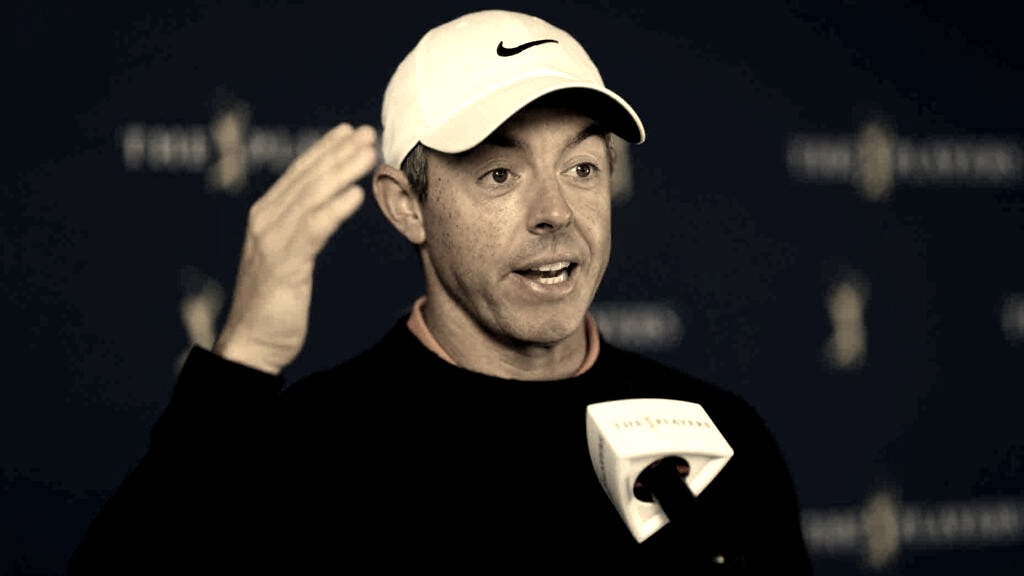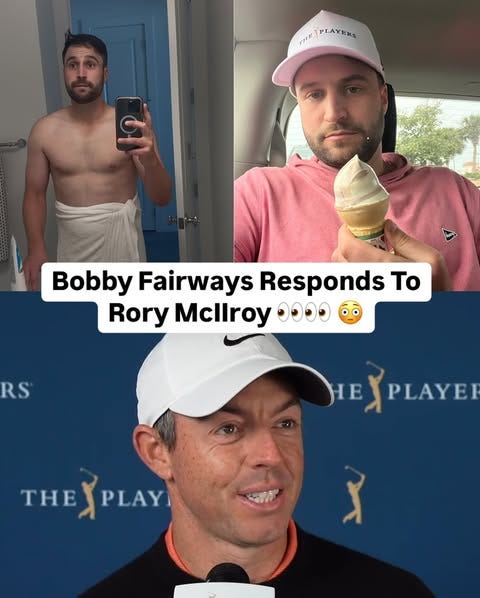Rory McIlroy's YouTube Golf Comments: A Reflection on Sensitivity in Modern Culture
Navigating the Fine Line Between Personal Preference and Public Perception in the Digital Age
Rory McIlroy didn't insult YouTube golf—he just said he’s not into it. That’s it. But in an era where every neutral statement gets twisted into an attack, his words sparked backlash among the YouTube golf community, especially the fans of it.
During a press conference preceding the Players Championship, McIlroy was asked about his engagement with the "YouTube generation" of golf content creators. His response was straightforward:
"Not really. I’m not of that generation. I’d much rather watch pure competitive — I’d much rather watch this golf tournament on Saturday and Sunday than watch YouTube golf."
He further elaborated, expressing happiness for those who enjoy such content and even said “I can obviously see the intrigue” but reaffirmed his preference for traditional competitive golf.
These comments, though seemingly innocuous, were met with varied reactions, many of which saw them as disrespectful to the YouTube golf community.
However, the best response was by far from Robby Berger, known for his "Bob Does Sports" YouTube channel, humorously addressed McIlroy's stance in an Instagram video, jesting about the competitiveness of YouTube golf and extending an invitation to McIlroy to join their content. Berger's lighthearted retort underscores a broader sentiment among digital creators who feel their contributions to the sport are undervalued by traditionalists.
McIlroy's preference for conventional golf tournaments over YouTube content highlights a generational and cultural divide. Traditional golf, with its storied history and established norms, offers a different experience compared to the informal, entertainment-centric approach of YouTube golf channels. This difference is not about the superiority of one over the other but rather a reflection of varied tastes and consumption habits.
Follow me for more golf, life, and other sports updates: Instagram
The crux of the controversy lies in the public's reaction to McIlroy's personal preferences. In today's hyper-connected world, where opinions are amplified and scrutinized, expressing a subjective viewpoint can inadvertently offend.
McIlroy did not disparage YouTube golf; he merely stated his viewing preference when asked a question. I think the backlash is a reflection of societal sensitivity and the increasing tendency to perceive neutrality or indifference as negativity.
Looking beyond the walls of elite competition, YouTube and creator-driven golf content are playing an increasingly important role in expanding the game. While McIlroy and many traditionalists focus on professional competition, digital content is actively engaging new audiences who might otherwise never pick up a club.
Channels like "Bob Does Sports" and "Good Good" bring a level of accessibility, humour, and community to golf that breaks down its often rigid and exclusive reputation. Creator golf deserves its respect because it provides an entry point for younger fans, casual players, and even those who might feel intimidated by the formality of the professional game. Rather than dismissing it as secondary entertainment, it should be acknowledged as a key component in growing golf's audience and fostering inclusivity.
Historically, shifts in media consumption have often been met with resistance from traditional quarters. The transition from radio to television, the rise of sports talk shows, and now the dominance of digital platforms have all faced skepticism. McIlroy's comments should just be seen as a traditional athlete expressing a preference for established formats over emerging ones.
The growing popularity of YouTube golf channels signifies a democratization of content creation, allowing enthusiasts to engage with the sport in novel ways. This evolution doesn't negate traditional formats but adds layers to the golf experience. Both can coexist, catering to diverse audiences, those seeking the glamour of professional tournaments and others preferring the relatability of digital content.
Rory McIlroy's comments serve as a reminder of the subjective nature of content consumption. While his preference leans towards traditional competitive golf, it doesn't diminish the value of alternative formats.
The reactions to his remarks highlight a cultural moment where personal opinions are often dissected and, at times, misconstrued. In celebrating the multifaceted world of golf content, there's room for both the sanctity of tradition and the innovation of modern media.
Sure, he could have added a few words that may have come across as more supportive, but he didn’t say anything that was negative. And that I think is what many of the offended should take note of.
Thanks for reading, David Skilling.
Follow me on LinkedIn | X | Instagram | Bluesky
If you know someone who’ll enjoy this article, please share it with them.



